How does one reconcile the carnage with the holy? Within the quietude of Quaker faith and practice rests a radical thought: that every day is holy. This is one reason why we don’t celebrate major Christian holidays such as Christmas or Easter. The theology is pretty straight forward and stems from the foundational belief that the spirit of God is found in everyone, without exception. Every day is infused with the presence of the Divine and therefore there is no sense of waiting for the coming of God or seeking the Spirit which may be absent. The spirit of the Divine is present within us. It has always been and it will always be. There is nothing we can do to earn this grace and there is nothing we can do to lose it. God is with us all, now and forever.
I try – and mostly fail – to live my life embracing the Spirit within me and within everyone I know and everything I see. I sometimes imagine myself swimming in the water of the Divine each and every day. Like a fish in a lake surrounded by water, we are all surrounded by God. The Divine is in the air we breathe, in the food we eat, in the ground we walk upon, in the people we meet, in the clouds above and in the cosmos beyond. Seeing the holy in everyday life isn’t about grand gestures. Rather, it is about noticing the wonder of the mundane; rejoicing in the dance of the dust in the sunlight streaming through your bedroom window. It is about noticing the grandeur of a butterfly or the delight of a child at play, or the miracle of a seed transforming into a flower. When we do the laundry or prepare a meal or meet with a friend in need, we are performing an act of worship – channeling Divine Light into the world. And so, if we spend our days immersed in the glory of God, then every day is a holy day. Or is it? I am haunted by the recent images I’ve seen in the Washington Post about the bloody aftermath of the shooting of 19 innocent children and two teachers at the Uvalde Elementary School in Texas on May 24, 2022. The newspaper has taken up the charge of bringing front and center the horror of what actually happens at a mass shooting. For example in classroom 112 at the Uvalde school we learn that the children were huddled together in a corner before they were massacred. One of the pictures in the Post shows the classroom at a distance where you can just make out the blood stained floor at the far upper left of the frame. But then, the next picture takes you up close. The blood is deep and crimson and smeared, and there is a tiny blood stained tennis shoe in the middle of the gore. It is heartbreaking. And then I am reminded of another picture, equally heart wrenching, of a Palestinian mother sitting on the ground, her head down as she is clutching the shroud wrapped body of her child. The child’s limp arm protrudes from the white cloth. And we know that this scene is repeated thousands of times. How does one reconcile the carnage with the holy? Certainly there is goodness and light throughout the world if we only look for it. But, that may be of little solace to the mother mourning her child whom she will never kiss again. Perhaps with some time and distance, these families will return to seeking the light of the Divine. But in the immediacy of it all, I imagine there is only darkness. Maybe the answer to the question of how does one reconcile the carnage with the holy is that we can’t. Maybe all we can do is hold the paradox of light and darkness in our hearts. Holiness does not mean an absence of death, or disease, or greed, or cruelty. Holiness simply means that in the midst of it all there is still the presence of God. It is we who are holy and it is we who must shine the light of the Divine onto the profane. In the words of the eastern mystic Rumi: “If everything around seems dark, look again, you may be the light.”
0 Comments
If the Spirit is active and present within every person, then what is needed is a conversion of heart. Are we spiritual beings having a human experience or are we human beings having a spiritual experience, is the famous question asked by Jesuit priest and philosopher Pierre Teilhard de Chardin. I believe it is the former, that we are spiritual beings at our core. But, taking it one step further, I also believe that everything within the Cosmos has a spiritual foundation; that the spirit of the Divine is woven throughout the universe and that God is the weaver.
If it is true that the Spirit is woven through all things and for all time, then there can be none other than a spiritual solution to any problem. In this context, all problems become spiritual problems. A few years ago, I was having an online conversation with a conservative Christian friend about what the bible says on the matter of the division between church and state. My friend – a bible literalists – was adamant that there is a clear demarcation between church and state, citing the new testament passage of Mark 12: 13-17 where Jesus takes a coin with the likeness of Caesar and announces that all should “give to Caesar what is Caesar’s and to God what is God’s.” The question Jesus answered was about paying taxes. What I believe he was getting at is this: What in the cosmos does not emanate from God? If you are arguing over whether the religious should pay taxes, you are focused on the wrong question. If everything comes from God, what does it matter? Pay the silly taxes to keep yourself out of harm’s way – but don’t lose sight of the fact that everything comes from the Divine. From my perspective, Jesus was saying that everything is spiritually focused; that we actually live in a spiritual world but get lost and confused in our worldly machinations. A Quaker F/friend of mine has spent many an anxious moment pondering what can a person do to raise the consciousness of the general public – and of our leaders and decision makers – about the pending environmental disaster unfolding within our lifetime and most certainly within the lifetime of our children and grandchildren. We Quakers believe there is “that of God” within everyone, and that the voice of the Divine leads and guides each of us. If that is true – and I believe it is – then God is at this very moment whispering to those recalcitrant decision makers that the earth is crying out; that they need to pay attention; that they need to act. Now. If the Spirit is active and present within every person, then what is needed is a conversion of heart. What is needed is a spiritual revival to awaken all to the call of the Divine on climate change; on gun control; on voter repression; on race, on equality, and on all other issues of justice and decency. How do we get there, how do we get to this global conversion of heart? We pray… for ourselves, for those who are or will be impacted by these issues, and for the decision makers – that they will quiet themselves enough to hear the faint whisper of the Divine and act on it. Is prayer enough? No. If prayer were enough, these seemingly intractable issues would be resolved. We must listen to the voice of God within our own heart and act on what we hear. We must become models of a people who are spiritually focused and who believe – whole heartedly – that the answer to all problems is spiritual. After all, we are a spiritual people living in a spiritual world, seeking a spiritual solution. Perhaps renowned spiritual leader Henri Nouwen said it best: “Every time in history that men and women have been able to respond to the events of their world as an occasion to change their hearts, an inexhaustible source of generosity and new life has been opened, offering hope far beyond the limits of human prediction.” We must pray. We must act. We must believe that our prayers and actions will be enough. And then, we must give over everything else to the Divine. Given my dreary disposition, it was clear something had to change. I turned 70 this summer, and it wasn’t an easy transition. I found myself thinking about all the potential losses I had in front of me. For example, I’m pretty sure I won’t be around to see any great grandkids and I’m not sure I will be able to “dance at my granddaughters’ wedding” since the oldest is six and the youngest will turn two in December.
I wondered how many years of sailing I have left, as my knees are becoming increasingly stiff and I’m not as nimble as I once was scurrying around a moving boat. I don’t want to become a liability and I don’t want to end up as one of those skippers who can only (and barely) just sit and steer the vessel. My father died at age 66 from early onset of Alzheimer’s disease. And now – every time I forget a name or why I walked down to the basement - I pause and wonder: is this how it starts. I remember being a teenager, lounging in my bedroom reading a Sargent Rock comic book and hearing my dad talking downstairs. I went down to see who happened to visit – only to find my dad reading a book out loud. Now, there were two things odd about this: one, that he was reading a book at all as that’s not something I ever saw him do before or after; and two, the fact that he was doing so – out loud. When I asked what he was doing, he just shrugged it off and said he wanted to “hear how the words sounded.” In retrospect, it is clear that he could feel his mind slipping and he was trying to find a way to stave it off. At the time, Alzheimer’s disease wasn’t commonly known, at least not in the circles I ran with in rural Western Pennsylvania in the late 1960s. You see where this was going. I mentally ran through every malady I knew of in my family’s history and imagined how each was a sentence hanging over me. Will I end up with macular degeneration like my mother– or kidney disease that incapacitated my grandfather? My uncle died from heart failure and my maternal grandmother became senile in her advanced years. Is that my fate? Clearly, as I approached turning 70, I became focused on a life of diminishing returns: one of lost opportunities, physical incapacitation, and mental instability; a life of increased strife and an absence of joy. Given my dreary disposition, it was clear something had to change. Since becoming a Quaker, I have a touchstone reading that helps to ground me. It is from Isaac Pennington – a 17th century Quaker: “Give over thine own willing. Give over thine own running. Give over thine own desire to know or be anything. And sink down into the seed God placed in thee and let that be in thee and grow in thee and act in thee. And know, through sweet experience that God knows that, God owns that, God loves that and will provide your life’s inheritance according to his portion.” For me, this quote reflects a Zen teaching: Acknowledge your feelings and desires, but don’t own them. Give them over and then, focus on the present. Upon contemplation, what I realized is that I have little control over what illnesses may befall me or how long I may live. What I do have control over is my ability to appreciate the here and now: the amount of love I share with my family and friends and my ability to drink in and savor the moments – whether playing with my granddaughters or sailing or sitting in the yard watching the butterflies or talking about the day with my wife over a cup of coffee. I am healthier now than I likely will be in 20 years. The same can be said for my mental capacity or my sailing skills. It is easier for me now to crawl around on the floor with my granddaughters than it will be years from now. From that perspective, I don’t want to waste the joys of the present in painful fear of a debilitated future. Now, I see 70 as the youngest I will be for the rest of my life so I plan on enjoying every minute of it. Or as my favorite poet Mary Oliver wrote: “It is a serious thing / Just to be alive / On this fresh morning / In this broken world.” No miracles will be forthcoming other than the ones we create on our own. The war in Ukraine has caused many of us to struggle with the Quaker Peace Testimony. Below, I share some of the questions that arose in my own discernment, the act of which brought a sense of peace with where I have landed on the Quaker Peace Testimony.
Is God active in the world – performing miracles – in answer to human prayers? With this theology, one may be able to support the Peace Testimony at all cost. If we pray earnestly enough, and often enough, and in community with as many people as possible, will the Divine answer our prayers and convert the heart of Vladimir Putin or his soldiers and generals in the field to halt the war? Is prayer and the rock solid belief in prayer the answer to this carnage? Do we believe that Ukrainian mothers and fathers and children and soldiers and clergy are already praying fervently – hour upon hour – day upon day? Do we believe that others around the world are also praying with heartfelt intent to petition God to end the war? I suppose the basic question is, why does the Divine need our prayers and petitions in order to act? In fact, Jesus tells us “your Father knows what you need before you ask Him.…” (Matthew 6:7-8) I suspect there is no scarcity of prayers, and that God isn’t in need of guidance from us in order to know what to do. Which led me to the next set of questions. Is God’s plan somehow unfolding with Russian aggression against the Ukrainian people? We hear some version of this tenet often in sayings like: “God doesn’t give us more than we can handle,” or “The Divine has a plan and who are we to question it,” or “God’s plan will unfold eventually, we must remain prayerful and patient,” or “There is certainly evil in the world because of mankind’s dark impulses and God-given free will, but goodness and light will overcome.” If the Russian invasion of Ukraine is somehow the result of God’s plan, then perhaps yes, I could stand firmly with the Peace Testimony, knowing that the Spirit will prevail. I suppose on a macro level one can argue for the idea of “God’s Plan” but to me it seems cruel on the micro level. For example – why does the Divine choose some children to die from leukemia while others survive? Same for every other cancer victim and cancer survivor. Why do some people walk away from a car accident while others die? Why do some people die from a bombing attack while others survive? Is God picking sides? Are those who died somehow unworthy of God’s love and protections? Are they paying for the sins of their fathers – from generations long gone? What if God is not directly active in the world? I had a “dark night of the soul” moment a short while back when I came to the realization that it is we who must choose the Divine in order to bring forth the kingdom of God on earth. We are already chosen. The Spirit is already within each of us, but that’s the full stop of it all, that’s where everything ends – according to my spirituality. The spirit of the Divine is infused into every molecule throughout the cosmos – from the furthest galaxy to the microbes under out feet. And that spirit is emanating love. That spirit is love, a love that each individual can choose to believe in and embrace or to ignore. For me, the freedom to ignore the spirit of God is how we end up with evil in the world. It is how we end up with greed and murder and war. Some choose to not embrace the spirit of God within, and to act on the impulses of the ego. The spirit hasn’t gone away – it is just drowned out by the self-driven cravings for possessions, money, prestige and power. For some, the siren call of the realm is louder than the soft whisper of the inward teacher quietly calling each of us to manifest God’s love. For those of us whose faith is formed by an understanding that the spirit of the Divine is already present but, that each of us is free to embrace or ignore it , then helping Ukraine to arm itself in defense of an aggressor intent on violence, destruction, and domination makes sense. We don’t need to pray for God to be present because the spirit of God emanates throughout the cosmos, softly exhorting each of us to manifest love. We cannot wait for the Divine to intervene into the matters of the world because God is already doing so, but only through our actions. No miracles will be forthcoming other than the ones we create on our own. There is certainly “that of God” flowing freely through us all, including both the Russians and the Ukrainians. Some choose to embrace that love while others choose to ignore it in favor of amassing worldly gains. Some believe it is an act of love to recognize the Spirit within each person and thus to oppose all acts of war. Others – like me – believe that it is a greater act of love to aid those who are fighting – in real time – to protect the innocent. It is difficult for me to support the idea of treating the aggressors and their victims alike. I will always come down on the side of the victims. I can’t fathom loving someone so much that I am prepared to relegate them to slaughter rather than supporting them to take up arms and defend themselves This Video captured my heart, and not just because my paternal grandparents emigrated from western Ukraine in the 1920s. It features a host of folk singer legends singing about the heroism of the Ukrainian people in the face of unimaginable devastation. If you like this piece - please share it with others.
Identifying grace...is easy when life is going our way. but, what about when life is hard?" One can’t understand gratitude without embracing grace. It is by reflecting on the grace that befalls us every day that we begin to develop a deepening sense of gratitude. On good days, it is easy to see the grace all around us; in the warm breeze, in the touch of a lover’s hand, in the laughter and innocence of a child.
Poet Mary Oliver noted that “Attention without feeling… is only a report. An openness …is necessary if the attention is to matter.“ Oliver was a master at holding up the wonder of the world for all of us to reflect upon. A honking goose, a grasshopper, the rain or sun, the trees or clouds – all were means she used in her poetry to help us uncover something deeper and richer emanating from our soul. The grace of the world provides an ongoing invitation to experience the whisper of God from within. It is a small step to go from recognizing the grace that abounds to being grateful for our many blessings. G.K. Chesterton wrote that “…gratitude is happiness doubled by wonder.” First, we marvel at the grace that showers us and then we cannot help but to become grateful for the bounty the Divine has granted. Of course – identifying grace and showing our gratitude for it is easy when life is going our way. But, what about when life is hard? How do we find grace and gratitude when we are in debilitating pain, or when we have lost a loved one, or when we have been fired from our job or when a family member has succumbed to drugs or alcohol, or when we have been abused? What then? Many a good believer has turned sour on the Spirit when life becomes crushing and prayers go unanswered. The silence of God during desperate times can be the harshest cruelty to befall a struggling soul. An excerpt from Psalm 102 aptly sums up this sense of existential void: For I have eaten ashes like bread and mixed my drink with tears… for You have picked me up and cast me aside… and I wither away like grass. It is when such spiritual darkness consumes us, when the thought of God’s grace is mocking us, when gratitude is beyond us, it is then we find whether we are led by faith. Only faith can sustain us when our troubled hearts and minds have crowded out grace and gratitude. Grace is bestowed upon us freely whether or not we desire it or feel we deserve it. Gratitude is a byproduct of our embrace of grace. But faith comes from the foundation of our relationship with the Divine who is always calling to us. We build up our faith when we work to quiet our ego and strive to hear the voice of our inward teacher. The more we open ourselves up to God, the brighter does the light from within illuminate our path. It is no accident that the Christmas celebration of the light of God incarnate comes during the darkest days of the year. Even before the birth of Jesus, people celebrated the winter solstice (December 21st) as the point when the dark days begin to wane, and light conquers darkness. Some have said that we either walk by faith or we walk in fear. I don’t think the world is ever that clear. Our lives are a paradox filled with the ebb and flow of grace and gratitude, woundedness and despair. We cannot evade the darkness in the world or the darkness in our souls. But we can take solace in knowing that light abounds; that grace abounds; that love abounds… and that the darkness will end. The light of God abounds, and such is the grace we have been given. For this unearned grace, I am profoundly grateful. There is a wound at the heart of our people that must be healed We Baby Boomers – have we left the world a better place than when we came into it? It seems like our watch on this planet has been punctuated with constant turmoil.
Growing up we had the Bay of Pigs, the Cuban Missile Crisis, the nuclear war “duck and cover” drills and air raid shelters. There were the assassinations of John and Bobby Kennedy, Martin Luther King, and Malcolm X. We fought about Viet Nam and then there was the Tet Offensive, which spurred our defeat and withdrawal from Viet Nam. We saw massive protests for Civil Rights and people pummeled in the streets and at lunch counters. We witnessed the demise of the American middle class as labor unions atrophied, wages stagnated, towns deteriorated, and countless lives were lost to alcoholism and drug addiction. We’ve experienced a resurgence of racism and white supremacy along with more mass shootings than any place else on earth. Ever. Most recently we’ve seen the debasement of politics with significant attacks on our democratic systems. We are at a time when facts don’t matter, when tribe supersedes the common good and wearing a mask and getting vaccinated to save our families and our neighbors fosters political attacks. We are just beginning to understand the extent of the January 6th insurrection and the attempt to circumvent a valid presidential election through brute force, which sadly has been accompanied by nation-wide efforts to roll back voting rights. And now – we can say that we saw both the birth of “Earth Day” and onslaught of the fierce effects of climate change such as massive wildfires, biblical flooding, and heat waves that cooked billions of shellfish in the sea. And all of that is just off the top of my head. I’m sure I’ve missed some big (and small but significant) events. My point is not to chronicle everything that has gone wrong during our collective time on earth, but to raise our consciousness to the possibility that we may not be done yet. The poet Dylan Thomas urges us to “ not go gentle into that good night” but rather to “rage against the dying of the light.” I’ve been tempted to say that it is time to let someone else rage about the state of the world. I’m rather enjoying my time working on our boat, and sailing, and I’ve been especially content to hang out with our two granddaughters. Buy I’m feeling as if there is something I need to do. There is a gentle nudge that’s just a whisper now, like the hint of wind on a glassy still lake. I care about the big issues of the day such as voter suppression, gun control, climate change, inequality, education and stay abreast of them. But it seems to me there is something deeper we need to address. There is a wound at the heart of our people that must be healed and from there, the issues will take care of themselves. I find it tragically ironic that the Trumpian Republicans and the Progressive Democrats both rally around the same point of view: each believes they are fighting for the very soul of America. Each fears that the future will bring catastrophic economic and cultural changes that must be stopped before they take hold. Where does the healing begin? How do we minister to a people so encamped in their positions and so energized to protect their way of life that they see no wrong in demonizing the “other side?” I am reminded of a quote from Julian of Norwich – a mystic from the middle ages - who wrote: “failure of love on our part is the only cause of all sorrow.” I’ve thought about this quite a bit. There is not a single evil or issue that can’t be traced back to a failure of love. I am struggling to find a constructive way to show how a demonstration of love can bring lasting change. Perhaps, it is as easy as Dorothy Day professes when she wrote “I don’t have the answers to solve everything. Be faithful today.” Is this the guidance we need? Be faithful today. Show peace today. Demonstrate love today. Embrace understanding today. Now that’s something we Baby Boomers understand; Peace, Love and Understanding. “What’s so funny about peace, love and understanding?” (1974 song written by Nick Lowe. Performed at the 2004 Vote for Change concert in Washington, D.C.)
(This article was first published in the September 2020 edition of Friends Journal, a national magazine of Quaker thought and life today)
I have found that the hardest part of being a Quaker is knowing that I must work out my own understanding of the Divine. A friend of mine once teased that we should sell T-shirts that say: “Become a Quaker. It’s a pain in the butt.” The journey from a sense of God who is “out there” and who is both loving and judgmental, to an understanding of the Divine as a still, small voice guiding us to deeper faith and understanding is certainly not a straight line. Most of the Quakers I know are convinced Friends, those who came to meeting after growing up in another faith tradition and after spending a fair amount of time wandering in the wilderness trying to find an image of God that can be reconciled in the heart. Many, like me, struggled with a paradoxical image of Spirit as both a welcoming mother and an exacting father. On one hand, the Divine beckons us into a warm and loving embrace; with the other, it offers a stiffened arm and warns us to not mess up lest we incur God’s wrath and be cast into eternal damnation. Growing up, this confusing sense of divine love coupled with divine retribution permeated my life. I was raised in a robust Italian community in a small town in western Pennsylvania. Like all of my friends, I attended Saint Rita’s Catholic School and served as an altar boy in the church. From early on, the nuns taught that God was omnipresent, omnipotent, and omniscient. The thought that a divine being who is everywhere, all knowing, and all powerful was more frightening than comforting to a young lad who wanted to pray and “be good” but who often failed at the effort. It is difficult to justify a God that is all knowing, ever present, and all powerful with the reality of sin and the earthly destruction in the world. One of the age-old questions is: How can a loving and all-powerful God allow disease, genocide, slavery, and any of the untold ways that humanity inflicts harm on one other? Both skeptics and faithful alike have grappled with this dilemma. In his heartfelt book A Grief Observed, C.S. Lewis asked, “Meanwhile, where is God?” as he struggled with the pain and suffering of his wife’s battle with cancer. Lewis observed that when life is going well, our relationship with the Divine is fine, and we are “welcomed with open arms.” But when tragedy strikes, according to Lewis, God slams and double-bolts the door. The silence is oppressive, and, “There are no lights in the windows.” I suspect we have all wrestled with cosmic silence in the face of anguished prayer at some point in our lives. In most Christian traditions, we are taught that Jesus is the answer to our salvation. At Milwaukee (Wisc.) Meeting, we host sessions on Quakerism for newcomers, one of which discusses the roots of Christianity in Quaker history, faith, and practice. During this session, we ask participants where they stand on the “Jesus continuum,” which provides a range of five perspectives of Jesus. On one end, Jesus is seen as a personal savior and son of God; in the middle of the continuum, Jesus is seen as a teacher and healer; on the opposite end of the spectrum, Jesus is not part of any spiritual path. It is remarkable to watch this process unfold and see that Friends span the entirety of the range. My own journey has taken me through all five of the steps on the continuum. I was often puzzled by my Quaker Friends who professed that they did not believe in a God. Most times, when I delved deeper into the understanding of these “godless Quakers,” I came to learn that many are pantheists, who believe that a spiritual energy is infused in everything in the universe—from cosmic dust in the furthest reaches of space to the tiniest microbes in the soil under our feet. But they don’t believe that a divine presence is guiding the world. The pantheist point of view is attractive. It takes away the paradoxical dilemma of a God that is loving yet prone to retribution. But it doesn’t adequately deal with the question of evil. The panentheist theodicy of God is one that sees the Divine in all of creation—similar to the pantheists—but which also believes that there is a Divine Spirit directing it all. God is woven into the fabric of the cosmos, but the Divine is also the weaver of the fabric. I have come to adopt this panentheist point of view from a very unique perspective. I am an avid sailor and spend as much time as possible sailing the inland sea known as Lake Michigan. After 20 years of sailing, sailboat racing, and cruising, I have learned to love and respect the lake. On one particular night in late July, we were coming in from a Wednesday evening race. The wind was light, and as we got closer to land, it became warmer. The sun was setting in the west behind the city skyline when at the same moment, the full moon began to rise up from the lake on the eastern horizon. I was standing on the back of the boat and just allowing the sensation of the evening to wash over me, when I heard a quiet thought from within saying: “This and thee are the glory of God.” It is easy to find the wonder of the Divine within the beauty of the world. It is quite another thing to feel at one with it all, to be welcomed into the grace of creation in a way designed to make sense uniquely to oneself. And by doing so, the message was clear: the infinite aspect of God is the wonder of the cosmos. The intimate part of God is that quiet-yet-recognizable voice that speaks in ways designed to help us understand. Unfortunately, like C. S. Lewis, we sometimes don’t hear the call; the voice of the Divine is muted. If we are not grounded in community and in a faith that believes we will eventually hear our internal guide, then we become susceptible to the more troubling aspects of our own ego and crassness of the world. Each of us is as much a part of the glory of God as is the warm sea breeze and the juxtaposition of a setting sun and rising moon. Each of us has the ability to hear the voice of the Divine speak to us from deep within our own soul. And the joy of it all is that we are partners in both. All we need do is breathe in the world, be still, and listen.
I can’t deny that I am frightened for the future of our country. The President acts as if he is above the law, while his party members cower and watch muted as the Constitution becomes a meaningless piece of parchment. And at the same time, the Democrats seem in disarray, hoping to find a candidate who will heal our divisions.
I know I’m not alone in my fear, but the adage that “misery loves company” doesn’t seem to apply. The fact that so many of my friends have the same sense of angst provides no solace. In former times, I could find peace in prayer. I used to believe that the Divine had a plan for me, and for the unfolding of the universe. If the world got too scary, I could wrap myself in the warm blanket of God’s love with the faith that all would be fine because everything was destined for God’s greater good. My faith is as strong now as ever before. What has changed, is my belief about what God is and how the Spirit engages with the world. Growing up Catholic, I perceived God as Omniscient, Omnipresent, and Omnipotent: that God knew everything, was ever-present and was all powerful. That’s not what I believe anymore, and as a result the world has become a more unsettling place. I no longer imagine the Divine as a life guard who will save us if we venture too far astray. We are left pretty much on our own, but not in a – God doesn’t exist – kind of way. We are left on our own, because we are how the Spirit moves in the world. The Divine is our inward teacher who pulls, prods, whispers, and maybe even goads us into becoming agents of peace and justice. If we don’t act to bring about the kingdom of God, then it won’t come about. But, knowing that I must take my part in the unfolding of the kingdom doesn’t solve the problem of a country that is seemingly spinning toward chaos. Being an old community organizer, I know that people in power only act when confronted with a countervailing power. And, that lack of power on the part of everyday people is the primary reason why we don’t see urgency around important issues like climate change or gun control; two of many concerns that have significant support within the US population. And so, here is my dilemma: I can’t pray for change, because I’m the answer to my own prayers. I can write letters to my elected officials and support a protest here and there – but I don’t see how that changes the power dynamics and brings about the systemic change we need. I can certainly vote and work for candidates who align with my values, but at this juncture that seems like a crap shoot. So, what am I to do? Theodore Parker wrote a paper in 1853 from which he is credited for the famous quote: “The arc of the moral universe is long, but it bends towards justice.” That may well be true and provides some guidance. A few argue that we are now living in the most peaceful time known to our species. While democracy across the world is teetering, the long sweep of history demonstrates that humankind does indeed march toward a greater good. Said another way: if goodness and light rests within the soul of each person, then the call towards goodness is unending. I see that in our own Meeting for Worship. Often, I will feel a tug to stand and speak a message I hear from within. But out of timidity or caution I hold back, only to see another Friend stand and deliver the same message I was pondering. I have been shown – time and again – that the voice of God will not be stilled. If one person hears but does not act, another will both hear and act. I have now come to see that the voice of the Divine is an eternal call for peace and love. When we heed that call, we take but one step in the long march of history towards building the kingdom of God. Thus, all who are troubled, like me, can take solace knowing: That God at their fountains Far off hath been raining
I used to believe joy was an emotion that would wash over me in the same way that a rogue wave will wash over the rails of a sailboat in the middle of the lake on a blustery day. It can be fierce, unexpected, uncontrollable, and soak one to the core of your being.
I don’t believe that anymore about joy. I now believe that joy can be cultivated. I have come to understand that the amount of joy in my life is proportional to the amount of gratitude I express; to the amount of thanks I give. This does beg a question that has been swirling through my mind: can we find joy in the darkness we encounter. Whenever I find a theme running through the disparate readings that I do, I try to take some time to reflect on what it may mean; to see if the universe is telling me to pay attention. Finding joy in dark times is one of those themes I’ve been presented. Now, I’m not a person who believes that God places obstacles in our path to mold us. For example, I’m not talking about the Divine testing us to find joy in the diagnosis of Alzheimer’s disease in a loved one. At age 55, my father was diagnosed with early onset of Alzheimer and I can tell you that for the next ten years I couldn’t find any joy there. The overriding emotions I remember are ones of anger, sorrow, fear, and despair. During the time of my father’s illness, I tried to run away from it. I was living in a different part of the country and only saw my dad on my annual visits “back home.” My mother and sisters provided most of the care for him. And when it became too much, they sorrowfully placed him in a nursing home. I never visited him in the nursing home; understanding that he wouldn’t know me and that I would walk away angry and heartbroken. A couple of times – when talking about my dad - I would slip and say “he’s in a funeral home” when what I meant to say was that he was in a nursing home. My dad died more than 30 years ago. I wish I had leaned more into my sense of anger and despair over his illness instead of running away from it. I wish I had the introspection to understand that I was making my dad’s malady about how it affected me and how it robbed me of spending my adult years with the man I so dearly loved. I’m in a different place now. Thirty years later when my mother became senile in her late 90s, I could separate my sense of loss from who she became. It pained me to realize that she didn’t know who I was when I walked into her room – but I could still love her on her own terms. She may not have been able to recognize me, but she was certainly gracious and wanted to ensure that I was comfortable while “visiting” her. For her 100th birthday she celebrated each of the gifts she received, even though she didn’t recognize most of her loved ones who gave them to her. And when she got bored she would say “this is boring. Let’s sing” and she would lead us all into her favorite song: “You are my Sunshine”. My sister copied the lyrics of all my mom’s favorite songs so we would have a ready repertoire and be able to sing with her. We did this because we loved her. We did this because we were grateful for the love she showed throughout our lives. I found joy in my mother’s impatience and readiness to sing. I found joy in her graciousness and overriding sense of hospitality. Having abandoned my father in his illness, I learned that joy can be found by accepting the circumstances that are presented and in being grateful for what I have rather than angry over what I lost. And so today, I practice seeking joy by expressing my gratitude to the people and things I encounter daily. I am grateful for the sun on a cold winter day. I am grateful for the smell of the leaves when I rake them to the curb. I am grateful for my loved ones who remind me daily that life is about loving what is in front of you and not pining over what is missing. |
AuthorMike Soika has been a community activist for more than 30 years working on issues of social and economic justice. His work for justice is anchored by his spiritual formation first as a Catholic and now as a Quaker. Pre 2018 Archives
|
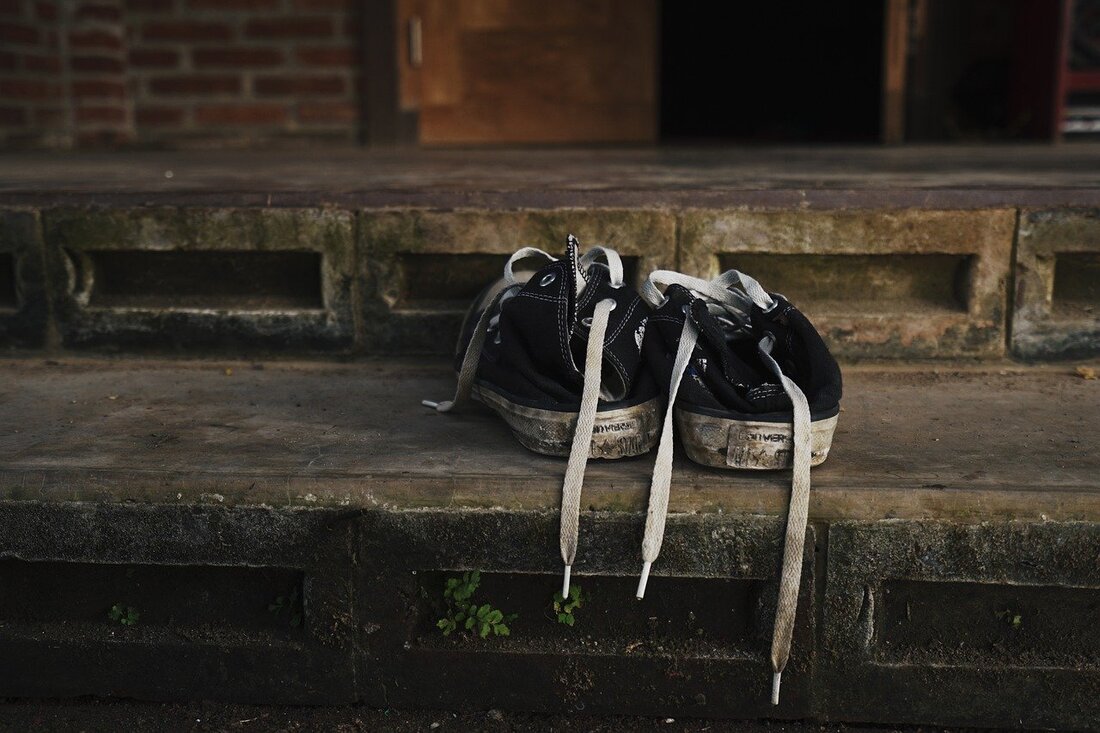
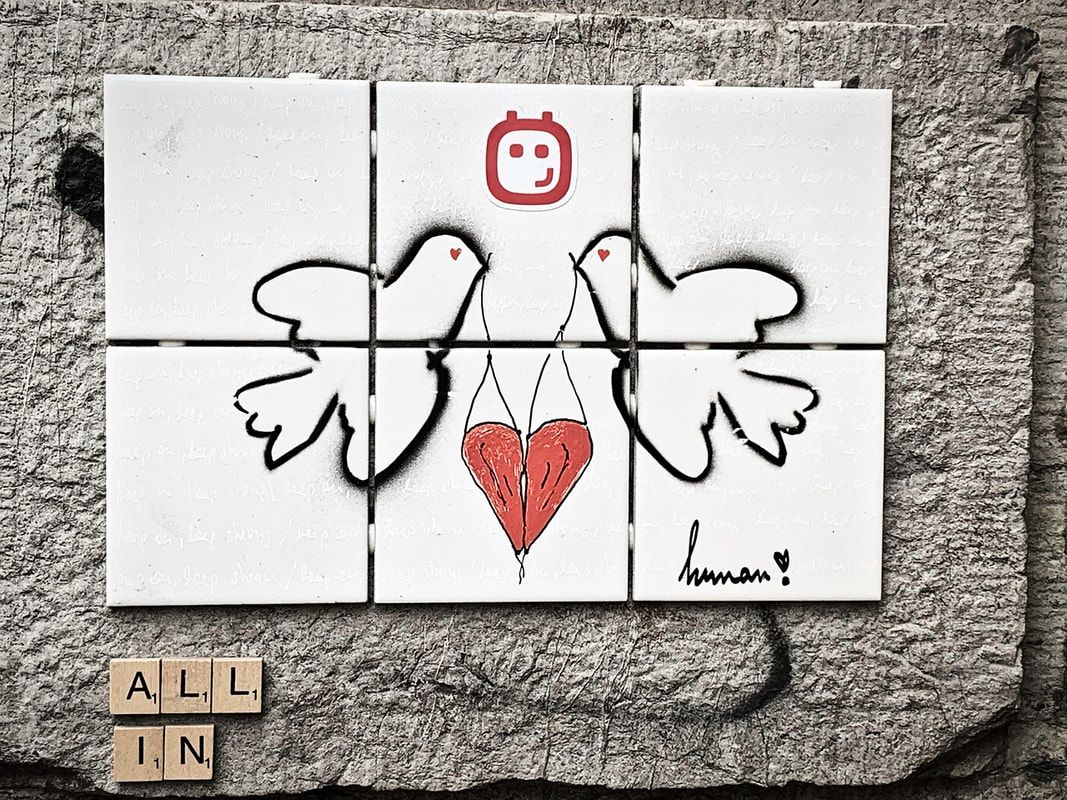

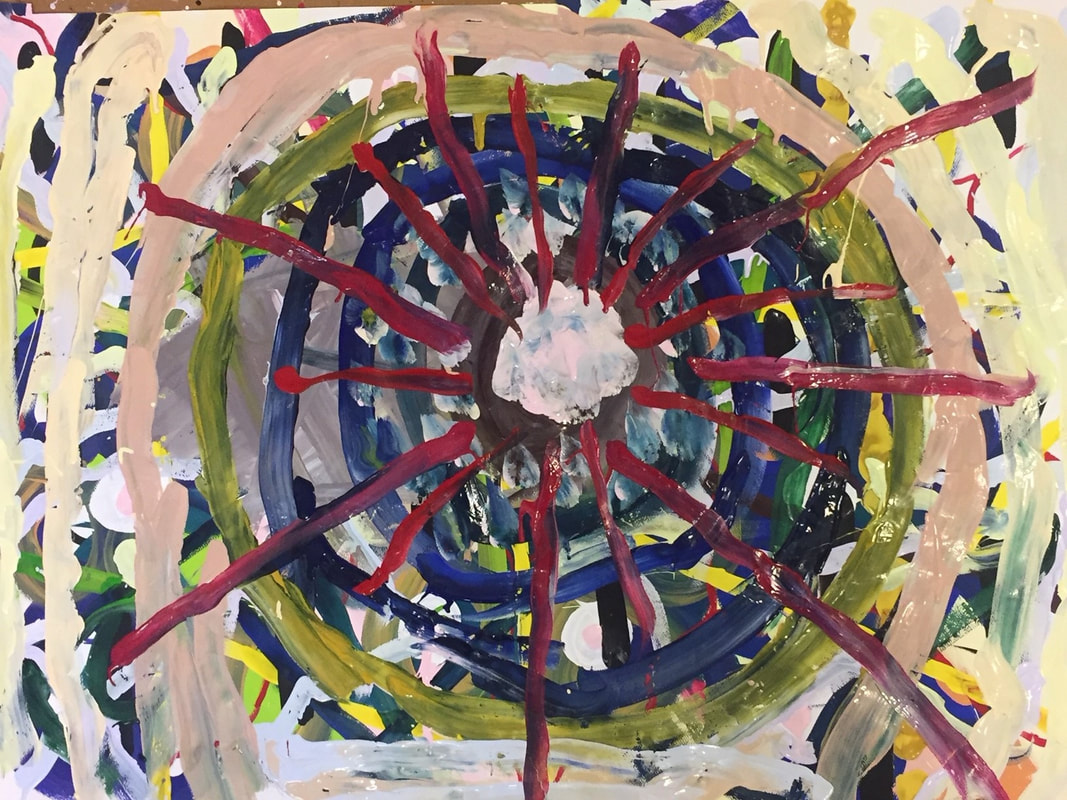
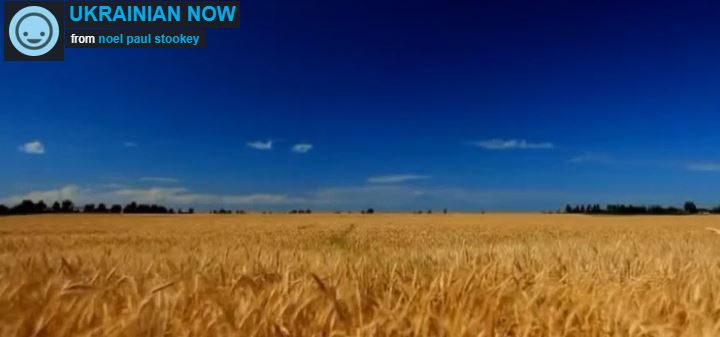
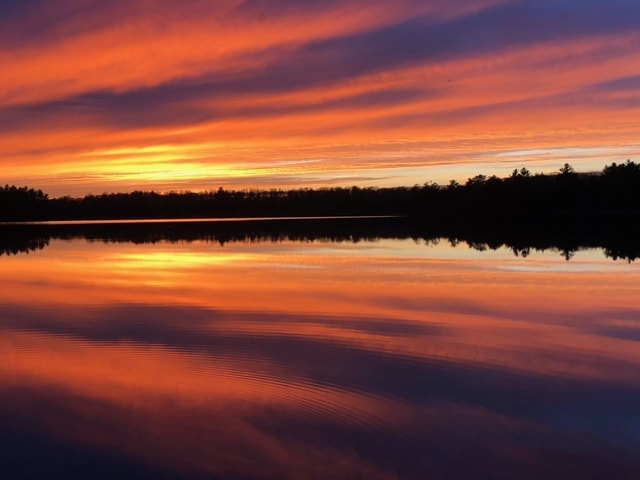
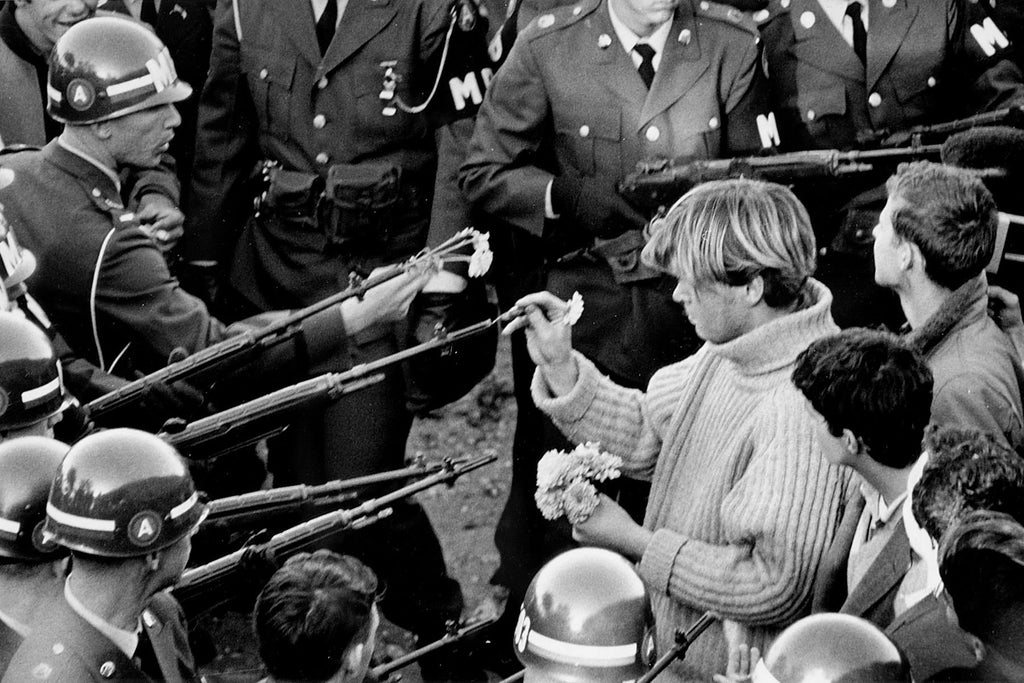
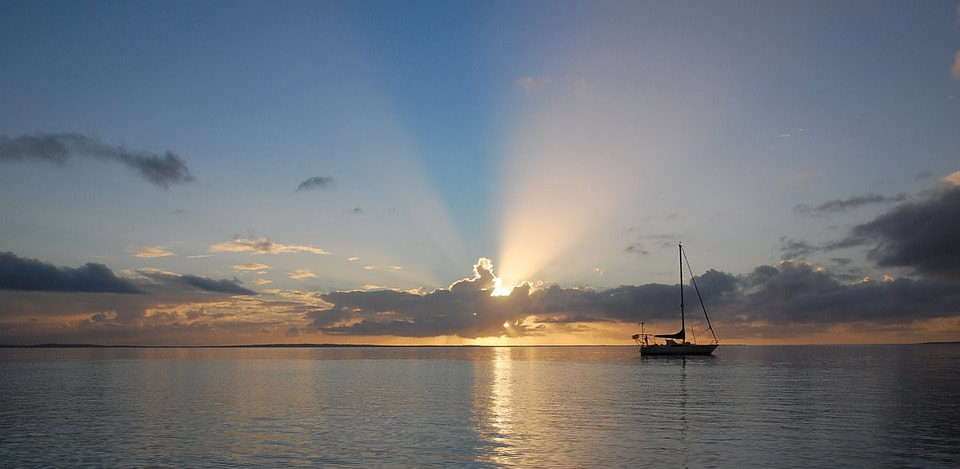
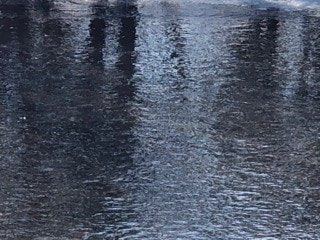
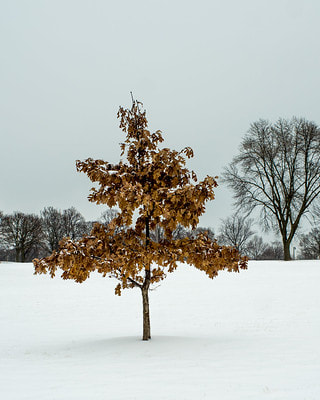
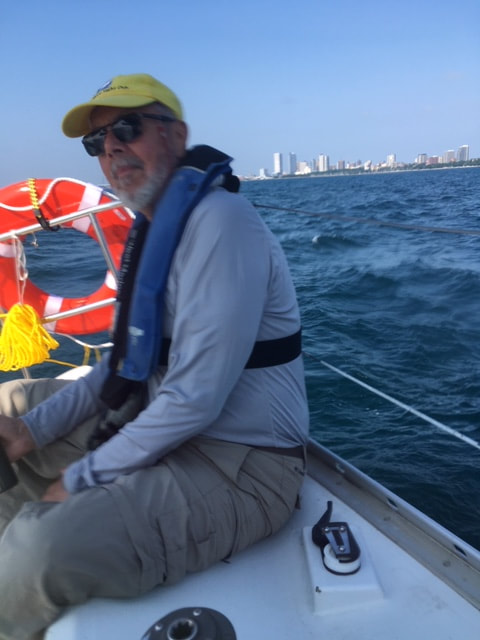
 RSS Feed
RSS Feed
